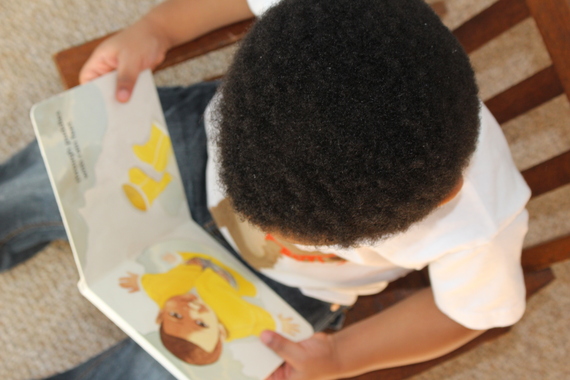I became a mother six and a half years ago and like experienced parents predicted, my world was turned inside-out and upside-down. Each subsequent baby brought about new joys, new challenges, new lessons, and new memories.
I was as prepared as any person could have been for impending parenthood. I had researched vaccines, decorated a nursery, and had a maternity leave plan. I sought advice from seasoned parents, read books and blogs, and learned about the dangers of BPA. I learned how to coupon for diapers, how to properly baby-wear, and some tried-and-true rules to prevent SIDS.
What I wasn't prepared for was how intrusive and inappropriate adults could be, particularly as my children got older.
When we elected to adopt due to my medical diagnosis of type 1 diabetes, we were open to adopting a child of any race. Today we are the parents of three children, all of whom are black. Our family is conspicuous and often of great interest to the general public.
We see ourselves as a real, normal family, but we recognize that others do not always share that same perception. Sometimes we are acknowledged by a simple smile or nod. Sometimes strangers proceed to offer a compliment: "What beautiful children!" or "You are lovely family!" We are used to such gestures and comments, and we find them kind but unremarkable.
However, some strangers cross the line. Strangers who try fondle our girls' beaded cornrows or rub their palms across our son's short afro. Strangers who ask if our kids are "real siblings" or call our son a "cute little thug." Strangers who approach us and ask what country our kids are from, how much they cost, the ages of their birth parents, and why we, as the parents, couldn't have "our own" children. Strangers who insist on knowing if our kids were foster children. Two different people remarked that my oldest daughter probably enjoyed her dance class because dancing is "in her."
Most recently, my girls were riding bikes in our driveway on a warm and sunny day when a young man leaned out his truck window and hurtled the n-word twice.
Because of the outright racism, racial microaggressions, and personal interrogations we've encountered as a family, I've had to teach my children some profound lessons in order to protect their bodies, their adoption stories, and their integrity. As the kids' mother, I've modeled many of these lessons for them as well as discussed situations after they occur, demonstrating that we will work through problems together.
Here are the six lessons I've been teaching my children regarding stranger-adults:
1. It's not okay for an adult to use his or her size, age, and authority to bully you into compliance. This might be in the form of questioning you about your race or your adoption, or in the form of physical touch. You are a person, deserving of respect and space.
2. It's okay to tell adults how you feel and expect them to honor your requests. Saying "Don't touch my hair," "I don't want to answer that question," even, "That's none of your business," is perfectly permissible.
3. Listen to your inner voice. If you feel that something isn't right, it's not right. God has granted you intuition. Use that gift.
4. Surprises are fine, but secrets are never ok. Do not believe or trust an adult who asks you to keep a secret from your parents or from those who love and nurture you. When something happens or something is said that makes your inner voice scream, tell your parents.
5. Name-calling, stereotyping, and labeling is unacceptable, particularly when adults choose to do these things. Stand up for yourself and stand up for others by telling a trusted adult what happened.
6. Just because someone is an adult, it doesn't make them trustworthy to know things about you or to touch you. Safe adults need to earn your trust and be people that your parents know and trust, too.
